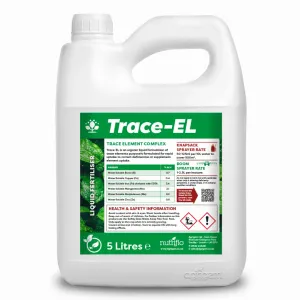What Does Copper Do?
Copper is a crucial micronutrient needed for plant growth; however, it is only required in very small quantities. Along with being required for photosynthesis, Copper is also needed for a number of enzyme systems, aids plant respiration and supports plant metabolism of proteins and carbohydrates. Copper is also responsible for improving and intensifying the colour and flavour of vegetables and the vibrancy of flowers.
Symptoms of Copper Deficiency:
The main symptoms of Copper deficiency in plants is dieback of the plant stems, withered, pale yellowing leaves and stunted growth. Interveinal chlorosis may be evident on some leaves and within these areas, necrotic spots (dead plant cells) may form. Copper is mostly immobile within plants; therefore symptoms will show on younger leaves and stems.
Control:
Copper deficiency can occur if the soil pH is too high as the copper becomes less available to the plant. Due to this, we recommend using our Soil Analysis Service which will provide you with details of your soil’s makeup, including the pH. Once you know the cause of the copper deficiency a corrective treatment can be used, for example Nutriflo Trace-El which contains 6 micronutrients, including Copper, or Headland Liquid Copper, which is a straight copper formula.
We recommend using a fertiliser containing trace elements to avoid giving your plants too much copper. We advise using Nutriflo Trace-El as as well as Copper, it also contains Boron, Iron, Manganese, Molybdenum and Zinc.
For more information on correcting a Copper deficiency, please get in contact with our sales team on 01522 246491.




